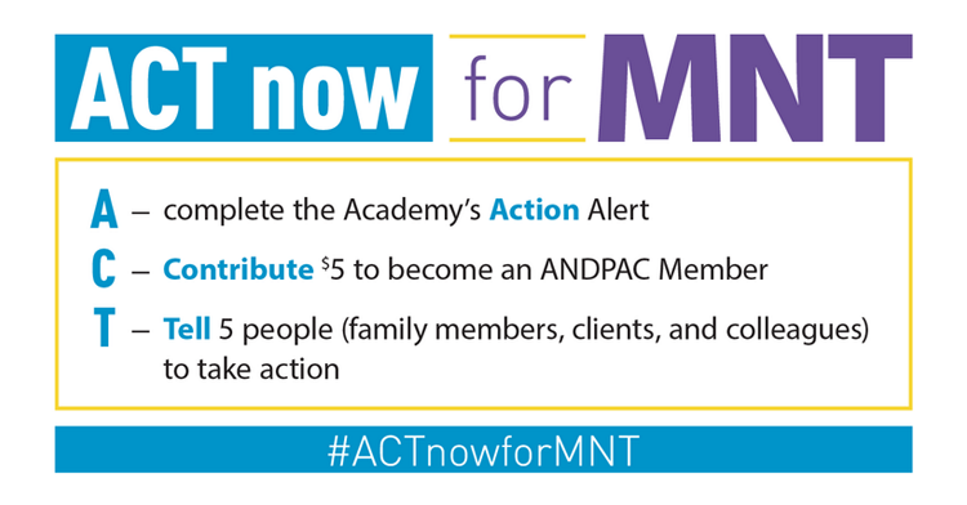Medical Nutrition Therapy Act
Overview
According to the CDC's National Center for Chronic Disease Prevention and Health Promotion, 90% of the nation's $3.5 trillion annual health care expenditures is spent on treating chronic and mental health conditions. Care for individuals with multiple chronic conditions is especially costly in the Medicare population, with more than two-thirds of Medicare beneficiaries having multiple chronic conditions.
Communities of color have historically faced chronic disease health disparities due to systemic inequalities that have manifested in reduced access to health care, healthy food and safe places to be active. The COVD-19 pandemic has magnified health disparities. The CDC lists people with obesity, diabetes and heart disease, as well as those undergoing dialysis for chronic kidney disease, as being at higher risk for severe illness from COVID-19, putting many racial and ethnic minority groups that experience health disparities at higher risk of poor COVID-19 outcomes. With over a year of data from the COVID-19 pandemic, it is very clear that American Indian, Alaska Native, Hispanic, and Black communities have been hospitalized and died at significantly higher rates than Non-Hispanic White and Asian populations. The compounding impacts of systemic inequalities, food insecurity, reduced access to care and now COVID-19, underscore the need to provide equitable access to medical nutrition therapy in Medicare.
MNT is an effective solution. MNT has been shown to be a cost-effective component of treatment for obesity, diabetes, hypertension, dyslipidemia, HIV infection, unintended weight loss in older adults and other chronic conditions. Counseling provided by an RDN as part of a health care team can positively impact weight, blood pressure, blood lipids and blood sugar control. In a national survey of primary care physicians, respondents reported believing that RDNs were the most qualified health care providers to assist patients with weight loss. Additionally, the National Lipid Association recommends nutritional counseling by RDNs to promote long-term adherence to an individualized, heart-healthy diet.
Academy Resources
- MNT Act Issue Brief
- MNT Stories One-pager
- MNT Act Leave Behind for Members of Congress
- MNT Effectiveness Leave Behind
- Infographic: Exploring the Benefits of Medical Nutrition Therapy
Key Points
The Medical Nutrition Therapy Act allows Medicare beneficiaries to access the care they need by providing Medicare Part B coverage for MNT for:
- Prediabetes
- Obesity
- Hypertension
- Dyslipidemia
- Malnutrition
- Eating disorders
- Cancer
- Gastrointestinal diseases including celiac disease
- Cardiovascular disease
- HIV/AIDS
- any other disease or condition causing unintentional weight loss.
The MNT Act also allows the U.S. Secretary of Health and Human Services to expand coverage for MNT to other disease or condition as determined medically necessary. In addition, this piece of legislation authorizes nurse practitioners, physician assistants, clinical nurse specialists and psychologists to refer their patients for MNT.
Get involved and connect with fellow Academy members to advocate for top policy priorities impacting our profession. The MNT Expansion Affinity Group meets the first Tuesday of every month for a forum-based event where staff, policy leaders and members discuss Academy advocacy priorities and strategies, share their experience and determine how they can become involved in advocating.
Join the Academy
Members of the Academy of Nutrition and Dietetics receive exciting benefits including complimentary continuing professional education opportunities, discounts on events and products in eatrightSTORE.org, invitations to exclusive members-only events and more!

